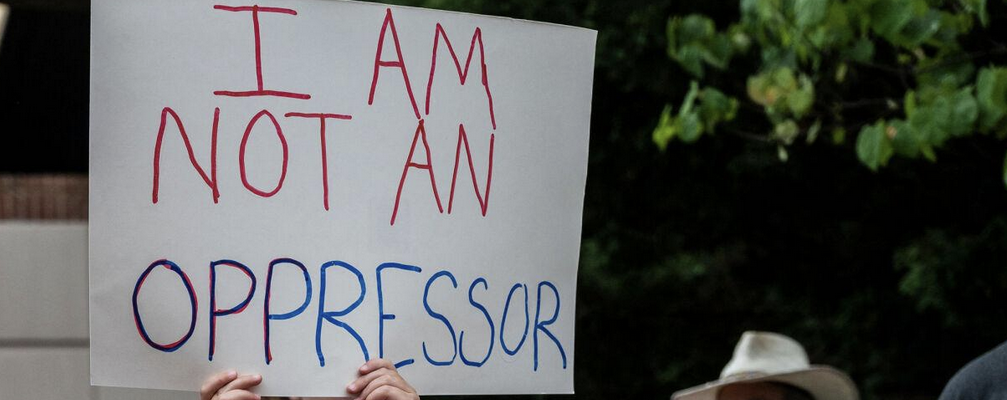
Persuading an audience to go to war necessitates radicalizing them. War always involves the killing of noncombatants–even the most carefully conducted wars kill noncombatants through bombings, drones, starvation, failure of infrastructure. When there is a fear of partisan action, there are massacres. If the war is intended to be a war of subjugation or extermination, then persuading people to go to war necessarily means persuading them to ignore normal ethical considerations about fairness, compassion, concern for innocent bystanders. Radicalizing an audience means that that extremism becomes a virtue, and that constraints on behavior are framed as weakness, cowardice, disloyalty, lack of patriotism (for more on this see Kruglanski et al). A radicalized audience doesn’t want to think, but wants to punish (Thucydides’ point).
Radicalizing an audience is rhetorically straightforward. There are two main strategies. One is to create a hobgoblin—something that doesn’t actually exist at all (Jews poisoning wells, lesbians persuading women to get abortions, witches who seduce children, Satanic childcare workers). The other, much easier, is the junior high school mean girl strategy. Imagine that there are three people: both Chester and Abilene are friends with Hubert, and Chester wants Hubert to be irrationally committed to him–that is, radicalize Hubert. Chester would tell Hubert that Abilene is spreading rumors that Hubert [does something shameful]. If Chester wanted Hubert to attack Abilene physically, then the rumors would be relentless and extreme attacks on Hubert’s prestige.
Notice that this strategy only works if Chester can persuade Hubert not to talk to Abilene directly. That will be important later. It’s also useful to point out that Chester is the one making Hubert feel shamed.
Radicalizing an audience means framing the situation as a war against [this group] as justified because They are evil people committed to shaming or destroying us.
If a political figure succeeds at persuading a base that “we” (the political figure sometimes is, but often is not, a member of the group they’re claiming to protect) is threatened with a loss of prestige, power, or existence (and those three things get confused), then that political figure can count on zero accountability. It’s war, after all, and so in-group political figures are not constrained by any moral or legal norms other than crushing Them.
And, if you’re a political figure or party, then zero accountability is desirable. The more that you can persuade your base that you are a loyal fighter against some hobgoblin, the less they will hold you to any standards at all–the only standard is that you are an enemy of Them.
The easy and rich rewards of making our political world a zero-sum battle between Us and Them is a rhetorical trap.
As I said, the the whole process falls apart if Hubert talks to Abilene. The narrative that 1) our world is Us and Them, and 2) They want us to feel shame, or They want us to be exterminated generally collapses if we ask for primary sources, and if we assess sources fairly.
The claim that the broad array of actual policy affiliations in the US is accurately described as either a binary or continuum between the left and right is false, non-falsifiable, and/or a self-fulfilling prophecy. But for political figures or pundits or media to radicalize their base, it has to be a premise–no matter how false or non-falsifiable. Demagoguery means that, in order to maintain the false binary, we lump all sorts of people together.
And then we cherrypick (use a minor political official to represent the whole party), nutpick (use some random PETA person to represent vegetarians, or some pastor of a small church to represent Christians), or actively lie in order to claim that we are justified in behaving as though politics is war. Since it’s war, every member of our in-group is justified in any actions (aka, not accountable) due to moral licensing.
And that is how the radicalizing demagoguery about CRT works.
It starts by creating a hobgoblin (CRT) that has nothing to do with what advocates of Critical Race Theory say, let alone what people who talk about systemic racism say. All of which has little to do with a goal of making white people feel shame.
It’s the anti-CRT people who want it to be about shame. Notice that they can’t quote anyone who says the goal of CRT is for white people to feel shame. That’s just eighth grade bullshit.
If you have to lie about what your opponent believes—and, let’s be clear, every pro-Trump attack on CRT lies about what CRT is—then maybe you should think about that. A group with a good argument doesn’t have to lie.
But if you are a political group that doesn’t want to be held to standards of morality, legality, fairness, or reciprocity, and you don’t have a good argument, then you need to radicalize your base for total war. And that is what this is about.

